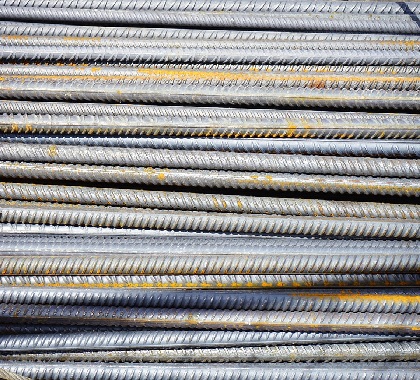A decision on whether to restrict how much steel U.S. companies may buy from businesses in other countries will come “fairly soon,” President Donald Trump told Wall Street Journal editor-in-chief Gerard Baker in a July 26 White House interview.
In April, Trump ordered U.S. Commerce Secretary Wilbur Ross to investigate whether foreign-made steel was a national security threat requiring emergency trade sanctions authorized by Section 232 of the Trade Expansion Act of 1962.
In 1971, President Richard Nixon’s use of Section 232 legal authority increased the cost of foreign-manufactured goods by 10 percent in an attempt to boost national prosperity and productivity.
Ross’ investigation into trade’s effects on American national security was due in June. Trump says the report is taking longer than expected.
“So, we’re waiting till we get everything finished up between health care and taxes and maybe even infrastructure, but we’re going to be addressing the steel dumping at a very—fairly soon,” Trump told Baker. “Just so you understand—we have massive reports. You know, a lot of this stuff you can’t just walk in and say, ‘I’m going to do this.'”
‘An Inappropriate Trade Restriction’
Tori Whiting, a research associate at The Heritage Foundation’s Center for Free Markets and Regulatory Reform, says protecting U.S. steel manufacturers against foreign competitors is not a matter of national security.
“First of all, a Section 232 measure on a commodity like steel is an inappropriate trade restriction to use,” Whiting said. “Not only do you have industry—but also defense officials— saying that steel, as a basic commodity, is not a matter of national security, it is not something that will keep us from fighting a war if we’re importing from Canada or Korea, or wherever.”
Much of the nation’s imported steel comes from friendly countries such as Canada, Whiting says.
“Actually, a large portion of the steel the United States imports is from Canada, and I don’t think Canada is planning on attacking the United States anytime soon,” Whiting said.
Concerned About Costs
Increasing the price of raw materials and protecting the steel industry from competition will not promote prosperity and security in the United States, Whiting says.
“Products that are neither scarce nor technologically sensitive do not pose a threat to national security and do not warrant these industry protections,” Whiting said. “Imposing tariffs on the basis of national security when the targets are basic commodities, such as steel, will increase the cost of one of the most crucial intermediate goods for the U.S. manufacturing and construction industries.”
Suggests Industry Influence
Dan Pearson, a senior fellow with the Cato Institute, says the Section 232 study may not be unbiased.
“What’s really going on here, in practice, is that the Department of Commerce really would like more import restrictions on steel,” Pearson said. “Secretary Wilbur Ross formerly ran International Steel Group. He has a lot of experience benefiting from import restrictions for his specific business. I think that is largely what’s going on.”




